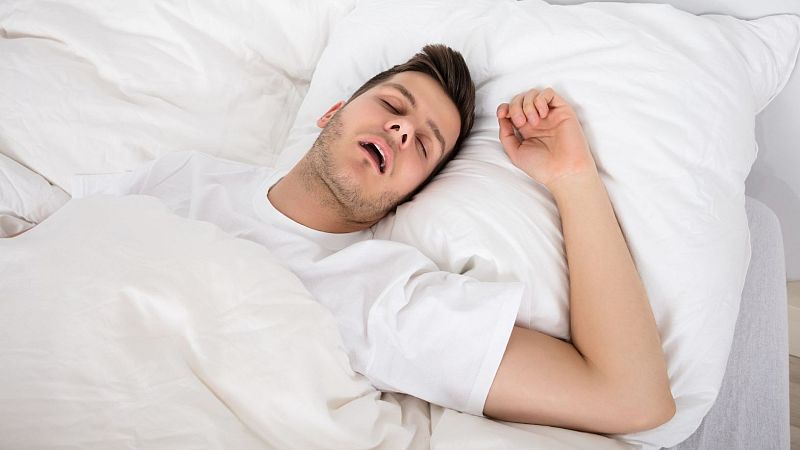
Staying up late over the weekend could make a common sleep disorder worse, a new study has found.
An estimated 936 million adults worldwide suffer from obstructive sleep apnoea (OSA), which is when the airways repeatedly collapse during sleep, causing pauses in breathing, frequent sleep disruptions, loud snoring, and daytime fatigue.
The latest study suggests the sleep disorder’s actual toll may be even greater, after researchers identified a spike in severity over the weekends driven by lifestyle choices and irregular sleep.
“Sleep is already a major public health issue, but our findings suggest its true impact may be underestimated,” Lucia Pinilla, one of the study’s authors and a sleep researcher at Flinders University in Australia, said in a statement.
“Most clinical diagnostic testing is done on a single night, typically a weeknight, missing the weekend effect we’re now calling ‘social apnoea,’” she added.
Pinilla’s team analysed data for about 70,000 people worldwide whose sleep quality was tracked using a monitor placed under their mattresses.
Sleep disruptions were much more common over the weekends, the study found. People were 18 per cent more likely to have moderate or severe OSA on Saturdays compared to Wednesdays.
Changes to sleep schedules – either staying up late or sleeping in – worsened sleep apnoea.
For example, sleeping an extra 45 minutes on weekends raised the risk of severe sleep disruptions by 47 per cent.
Lifestyle and age-related factors also appear to play a role. Adults ages 60 or older had a 7 per cent higher risk on weekends, compared with 24 per cent of those under 60.
The findings were published in the American Journal of Respiratory and Critical Care Medicine.
How sleep apnoea affects health
Sleep apnoea can have more serious consequences than a poor night’s rest. If left untreated, the condition may raise the risk of heart disease, diabetes, stroke, depression, and dementia.
Pinilla warned that the weekend spike could raise the risk of these health issues even more.
Many people with OSA use a continuous positive airway pressure (CPAP) machine when they sleep to ensure regular airflow and prevent breathing interruptions and snoring overnight.
Danny Eckert, one of the study’s authors, said people with OSA should also try to maintain a regular sleep routine and get seven to nine hours of sleep per night, even on the weekends.
“Keeping a fixed wake-up time and using your prescribed OSA therapy, even on weekends, and going to bed when you feel sleepy will help ensure you frequently get enough restorative sleep which can help combat the weekend spike in OSA,” Eckert said.







